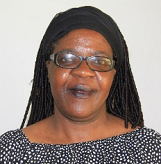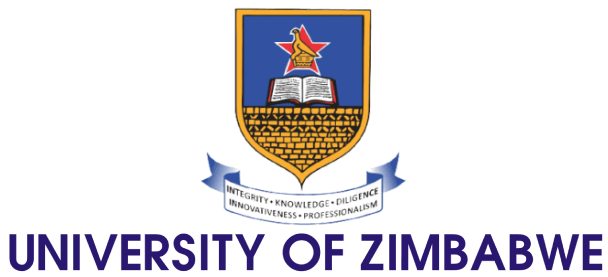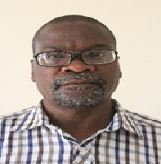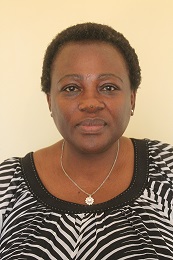Senior Lecturer
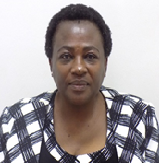
Dr Naomi Netsayi Wekwete
Qualifications: BSc. (Honours) Economics (UZ); M.Sc. Population Studies (UZ); Ph.D. in Applied Population Research (University of Exeter, UK).
Cell: +263772523918/+263712870287
email: This email address is being protected from spambots. You need JavaScript enabled to view it. / This email address is being protected from spambots. You need JavaScript enabled to view it.
Autobiography
Dr Naomi N. Wekwete is a senior lecturer at the Department of Demography Settlement and Development, University of Zimbabwe (UZ). She holds a Ph.D. in Applied Population Research from the University of Exeter, England; M.Sc. in Population Studies and B.Sc. (Honours) Economics from the University of Zimbabwe. She has over 25 years of experience in conducting policy-oriented research, monitoring and evaluation of programs/projects, and consultancy work for Government ministries, several non-governmental organisations and international organisations including the SADC, UNAIDS, UNFPA, UNDP, UNICEF and UNESCO. She has won several research grants, including the Research Grant Sabbatical Research Grant (OSSREA); HIV/AIDS and Social Sciences Research Grant (CODESRIA/UAPS); Senior Scholars Research Grant: HIV/AIDS Challenge in Africa, OSSREA; Cannon Collins Educational Grant; Simon Population Trust Research Grant and University of Cambridge Small Grants for my Ph.D. Research. She has various publications in peer-reviewed journals, book, book chapters and research monographs and is a reviewer for international and regional journals. She is the Zimbabwe National Statistical Agency (ZIMSTAT) Board Chairperson and Research Council of Zimbabwe (RCZ) Board member.
Research Interests
Adolescent Sexual and Reproductive Health; Fertility; Morbidity and mortality; Migration; Gender-Based Violence; Gender and Population; and, Gender and Economic Development.
Publications and Research Profile
Publications
Books
- Wekwete N.N., Rusakaniko S., and Zimbizi G. 2016. National Adolescent Fertility Study, 2016, Harare, Ministry of Health and Child Care.
- Wekwete N.N. 2010. Adolescent Pregnancy Challenges in the Era of HIV and AIDS: A Case Study of a Selected Rural Area in Zimbabwe. Organisation for Social Science Research in Eastern and Southern Africa (OSSREA), Addis Ababa, Ethiopia.98 pp ISBN: 978-9944-55-48-5.
Book Chapters
- Wekwete N.N. and Mangombe K. 2022. “Causes of Death and the Double Burden of Disease in Africa: Evidence from the sub-Saharan Africa”, in Odimwegu and Adewoyi (eds.) The Routledge Handbook of African Demography. Routledge.
- Mangombe K., Wekwete N., Milanzi A., Musizvingoza R. and Lwanga C. 2021. Factors Associated with Overweight and Obesity among Women Aged 15-49 Years in Zimbabwe: Evidence from the 2005/6, 2010/11 and 2015 Zimbabwe Demographic and Health Survey, DOI: 10.5772/intechopen.95909
- Nduna M., Mkwananzi S., Wekwete N.N. and Makongoza M. 2020. “Contextualizing the Many Faces of Domestic Violence: A focus on the global South” in Cheung F.M. and Harpen D.F. (ed) The Cambridge Handbook of the International Psychology of Women. Cambridge University Press.
- Wekwete N.N., Jokomo Z. and Masuko L. The Impact and Consequences of HIV and AIDS in the Mining Sector in Zimbabwe: A case study of a Gold Mining Company, in Erinosho and Wekwete (eds.) HIV/AIDS and Its Impact on Africa. Dakar, CODESRIA.
- Wekwete N.N. 2013. “Challenges of Young Mothers Living with HIV and AIDS in Zimbabwe” in Wangulu E.F. ed. Towards an HIV-free Generation: Addressing sexual and reproductive health needs of young people and women. 91-100. Royal Tropical Institute (KIT), South Africa.
- Wekwete N.N. and Madzingira N. 2008. Adolescent Girls’ Susceptibility and Vulnerability to HIV and AIDS: The Case of Murehwa District, Zimbabwe, in OSSREA ed. The HIV/AIDS Challenge in Africa - An Impact and Response Assessment: The Case of Zimbabwe. OSSREA ISBN: 978-99944-55-03-4
- Chizororo M., Wekwete N., and Matshaka M. 1999. Family Influences on Zimbabwean Women’s Reproductive Decisions and their Participation in the Wider Society, Harare, Zimbabwe: Institute of Development Studies, University of Zimbabwe.
- Francis-Chizororo M., Wekwete N.N., and Matshaka M. 1998. “Family Planning, Women’s Participation in Development: The mediating effects of gender” in Mhloyi M. (ed) Women’s Participation in Development – The Role of Family Planning, p. 71-89.
- Wekwete N.N. 1998. “Implications of Economic Structural Adjustment Program on Population and Environment: The Case of Shamva District”, in Masuko L (ed.) Economic Policy Reforms and Meso-Scale Rural Market Changes in Zimbabwe: The Case of Shamva. Institue of Development Studies (IDS) Book Publication, p. 3-53.
- Wekwete N.N. (1994) "Status Women and Fertility in Zimbabwe", in Muhwava W. (ed.) The Demography of Zimbabwe: Some Research Findings. Earthware Publishing Services, Harare. p. 1-27.
Referred Journal Articles
- Wekwete N.N., Milanzi A., Mangombe K., Musizvingoza R., Songore T., Moyo N. and Mutiro T. (2021) Effectiveness of the Youth Helpline Project on Knowledge, Attitudes and Practices of Young People on COVID-19 in Zimbabwe. ResearchGate. DOI: 10.13140/RG.2.2.14907.54565
- Hatendi C.M., Wekwete N. and Mangena F. 2019. The Advertising of Modern Contraceptives: Some Gender Implications for Women in Johane Marange Apostolic Church in Zimbabwe. Zambezia, 46(2):151-163.
- Musizvingoza R. and Wekwete N.N. 2018. Factors Facilitating Risky Sexual Behaviour among Youths in Mufakose. African Population Studies, 2(1):3903-3916.
- Wekwete N.N. 2014. “Gender and Economic Empowerment in Africa: Evidence and Policy Issues”. African Economic Research Consortium (AERC). Journal of African Economies, pp 1-41.
- Wekwete N.N., Sanhokwe H., Murenjekwa W., Takavarasha F., and Madzingira N. 2014. The Association between Spousal Gender Based Violence and Women’s Empowerment among Currently Married Women aged 15-49 in Zimbabwe: Evidence from the 2010-11 Zimbabwe Demographic and Health Survey. African Population Studies, 28(3):1413-1431.
- Gwavuya S., Murendo C., Wekwete N.N., and Takavarasha F. 2014. Maternal Iron and Vitamin A Supplementation and the Nutritional Status of Children in the 2010-11 Zimbabwe Demographic and Health Survey. Zimbabwe Working Papers, No. 10., Further Analysis of the Zimbabwe Demographic and Health Surveys, Rockville, Maryland, USA: ICF International.
- Wekwete N.N. and Manyeruke C. 2012. “Strengthening Research Capacity in Africa: Gender, sexuality and politics with a strategic focus on the lives of young women”. Feminist Africa, Issue No. 17: 91-101.
- Wekwete N.N. and Madzingira N., 2009. Girls’ Vulnerability to HIV and AIDS: The case of Murehwa District, Zimbabwe, African Population Studies, Supplement Addition to Vol. 23, p.27-44.
- Meekers D. and Wekwete N.N. (1997) The Socio-Economic and Demographic Situation of Adolescents and Young Adults in Zimbabwe: Zimbabwe Further Analysis. Calverton, Maryland: Macro International Inc.
- Wekwete N.N. (1995) Population and the Environment in Zimbabwe: The Case of Rural Households. Southern African Journal of Demography, 5(1):60-64.
- Maya R.S. and Wekwete N.N. (1989) Issues and Prospects for Coal Utilization in Zimbabwe's Rural Households. ZIDS Research Report.
- Wekwete N.N. (1989) Introducing Systems Dynamics in National Planning. ZIDS Working Paper.
Conferences and Workshop Papers Presented
International Conference and Workshop Papers
- ‘Resourcing Research for Early and Emerging Researchers: The Southern Africa perspective’. Paper presented at the 25th Congress of the World Association of Sexual Health Conference, Virtual, 9-12 September 2021.
- Wekwete N.N., Milanzi A., Mangombe K., Musizvingoza R., Songore T., Moyo N. and Mutiro T. 2021, ‘Effectiveness of the Youth Helpline project on Knowledge, Attitudes and Practices of Young People on COVID-19 in Zimbabwe’, Paper presented at the Stanford Infodemic Conference on social media and COVID-19 Vaccine Misinformation, Virtual Stanford, 26-27 August 2021.
- ‘Research to Policy’. 2nd Annual PAN African College on Sustainable Cities Fellows Workshop, 19 August 2020, Virtual workshop.
- ‘Gender-Based Violence Under Lockdown in Zimbabwe’. Gender-based Violence under Covid-19 Lockdown: Reflections from South Africa and Zimbabwe, Webinar, 29 July 2020, Webinar.
- ‘Migration Data Availability and Quality in Zimbabwe: Innovative ways of data collection or estimation’. International Forum on Migration Statistics (IFMS) 2020, 19-22 January 2020, Cairo, Egypt.
- ‘Gender and the Care Economy in Southern Africa’. Commission for the Status of Women (CSW) Conference, New York, 17 March 2017.
- ‘Young Women’s Leadership (YWL) History – UZYWL Perspective’. An introductory of the history presented at the YWL Regional Workshop on Transforming Women’s Lives: Looking to the Future, Johannesburg, South Africa, 12-15 April 2018.
- ‘Gender and Economic Empowerment in Africa: Evidence and Policies’. African Economic Research Consortium (AERC) Biannual Conference, 2-5 December, 2012 Arusha, Tanzania.
- ‘Mapping the Sexual and Reproductive Health of Female Students at the University of Zimbabwe’. Paper presented at a Conference on Strengthening Research Capacity in Africa: Gender, Sexuality and Politics with a Strategic focus on the Lives of Young Women, 7-10 September 2010, African Gender Institute, University of Cape Town.
- ‘Sexual and Reproductive Health and Rights’. International Women’s Day Commemoration, Women’s University in Africa, 8 March 2010.
- Wekwete N.N. and Madzingira N. 2008. ‘Girls’ Vulnerability to HIV and AIDS: The Case of Murehwa District’. Research paper presented at a seminar organised as a follow-up to the Union for African Population Studies (UAPS) – Arusha Conference. Organised by the Department of Social Development, South Africa. The Lord Charles Hotel, Western Cape Province, South Africa, 3-4 June 2008.
- Wekwete N.N., Masuko L. and Jokomo Z. 2008 ‘Impact of HIV and AIDS on the Mining Sector in Zimbabwe: The Case of a Gold Mining Company’. Paper presented at the Social Sciences and HIV and AIDS: A Research Policy Conference. Organised by CODESRIA. Abidjan, Cote d’Ivoire, 16-17 June 2008.
- Wekwete N.N. and Madzingira N. 2007. ‘Girls Vulnerability to HIV and AIDS: The Case of Murehwa District’. Paper presented at the Fifth African Population Conference on “Emerging Issues on Population and Development in Africa”, Arusha International Conference Centre, Arusha, Tanzania, 10-14 December 2007.
- Wekwete N.N., Masuko L. and Jokomo Z. 2006. ‘Impact and Consequences of HIV and AIDS on the Mining Sector in Zimbabwe: The Case of a Gold Mining Company’. Paper presented at the International Conference on The Social Sciences and HIV/AIDS in Africa: New Insights and Policy Perspectives, United Nations Conference Centre, Addis Ababa, Ethiopia, 20-22 November 2006
- Adolescent Pregnancy Challenges in the Era of HIV and AIDS: Lessons Learnt through Lived Experiences in Zimbabwe’s Selected Rural Area. Paper presented at the OSSREA Sabbatical Grant Programme Workshop, Ghion Hotel, Addis Ababa, Ethiopia, 30 November – 1 December 2006
- Wekwete N.N. 2006. ‘Girls’ Susceptibility and Vulnerability to HIV and AIDS: The case of a rural area in Zimbabwe’. Paper presented at the International Conference on The Social Sciences and HIV/AIDS in Africa: New Insights and Policy Perspectives, United Nations Conference Centre, Addis Ababa, Ethiopia, 20-22 November 2006.
- Wekwete N.N. and Madzingira N. ‘Girls Vulnerability to HIV and AIDS: Research Findings of Murehwa Study’. 20025. Paper presented at the ICASA Satellite Workshop, Abuja, Nigeria. 6-9 December 2005.
National Workshop Papers
- Wekwete N.N., Mangombe K. and Zanamwe L. 2021. ‘COVID-19 prevention measures: The case of a Hopley High-Density area Suburb in Harare, Zimbabwe’, paper presented at the University of Zimbabwe 2021 Research Week, Virtual, 25 August 2021.
- Wekwete N.N., Milanzi A., Mangombe K., Musizvingoza R., Songore T., Moyo N. and Mutiro T. 2021, ‘Effectiveness of the Youth Helpline project on Knowledge, Attitudes and Practices of Young People on COVID-19 in Zimbabwe’, paper presented at the University of Zimbabwe 2021 Research Week, Virtual, 23 August 2021.
- ‘Child Marriages in Zimbabwe: Associated Factors’. University of Zimbabwe Research Week, University of Zimbabwe, 26 July 2017.
- ‘Methodological Challenges of Producing Data on International Migration’. ZIMSTAT User-Producer Workshop, Troutbeck Inn, 23-26 March 2015.
- ‘Gender, Macro-Economics and the Liberalisation of the Economy’. Gender, Macroeconomics and Trade GAD Talk, Zimbabwe Women’s Resource Centre, 12 February 2009.
- ‘Review of the National Population Policy and Identification of Emerging Population Issues in Zimbabwe’. Paper presented at the Review of the 2008 National Population Workshop. Troutbeck Inn, Nyanga,1-2 December 2008.
- ‘Gender and Macro-Economics’. Gender Mainstreaming Training Workshop for Government of Zimbabwe Gender Focal Units, Holiday Inn, Mutare, 2 November 2007.
- ‘Gender, Economy and the Media - Business Women and the Media: friends or foes?’ Paper presented at the Gender and Media Zimbabwe (GEMZI) Workshop. Bronte Hotel, Harare. 5 June 2006.
- ‘Gender and the Macro-Economics: Women Entrepreneurs in Zimbabwe’. Paper presented at the Workshop for Female Entrepreneurs, co-ordinated by EKOWISA. Crown Plaza Monomotapa Hotel, Harare. 4 May 2006. Funded by UNIFEM.
- ‘Gender, Health and Reproductive Health’ Paper presented at the 2006 Zimbabwe Human Development Report Methodology Workshop. Kadoma Ranch Motel, 10-11 March 2006.
- ‘Gender and Macro-Economics: A national perspective’. Paper presented at the Gender and Macro-Economics Workshop, SARDC, Harare, 2 August 2005
- ‘Gender, Food Security and Poverty in Southern Africa’. Paper presented at the Gender Perspectives in Macro-economics for Understanding and Eradicating Feminized Poverty in Southern Africa, Holiday Inn, Harare, 27-30 September 2004.
- ‘Demographic Characteristics and HIV/AIDS Impact’. Paper presented at the 2002 Colloquium of the Southern African Southern African Political Economy Series (SAPES) Trust on “HIV/AIDS and Socio-Economic Development in Southern Africa”, Sheraton Hotel, Harare, 22-25 September 2002.
- ‘Population Issues in Zimbabwe’. Paper presented at the Fourth African-American Summit, Harare International Conference Centre, 21-26 July 1997.
- ‘Southern African Cities and Sustainable Development’. Paper presented at the workshop to Select Associates for COHORT 5 LEAD Southern Africa, (30 pages) SIRDC Offices, Hatcliffe, Harare: 12-16 May 1996.
- ‘Zimbabwe's Economic Performance: Major Problems and Constraints’. Paper presented at the UNESCO sponsored training workshop for Young Economists; February 1989.
- ‘User Perspective on the Relevance of CSO Data to Socio-Economic Research’. Paper presented at the Producers and Users of Statistics Workshop; Harare, October 1987.
- Community Service
- Zimbabwe National Statistics Agency (ZIMSTAT) Board Chairperson, 1 November 2020 – present.
- Research Council of Zimbabwe Board Member - February 2021 to present.
- Member of the Tugwi Mukosi Project Consortium, 2020-2022
- Member of the New City Master plan Team, 2021-2022
- Member of the Organising Team of the University of Zimbabwe Research Week, 2017, 2019, 2021, 2022
- Quality Assurance Committee Chairperson, 2021 University of Zimbabwe Research Week
- Member of the University of Zimbabwe Research Board, 2018-2019
- Department of Demography Settlement and Development (DSD) Higher Degrees and Research and Innovation Committee Member 2020 to date
- DSD Time Table Selection and Attachment Committee Member 2020 to date
- DSD Curriculum and Policy Development and Quality Assurance Committee Member 2020 to date
- DSD Community Outreach Committee Member 2020 to date
- Faculty of Social and Behavioural Science Programming Champion 2020
- Zimbabwe Millennium Development Goals: 2000-2015 Final Progress Report, 2015. Harare, Ministry of Macro-Economic Planning and Investment Promotion.
- UZ Representative of the UNESCO Social and Human Sciences Commission, 2017-2021
- Member of the Inter-Ministerial Technical Census Committee (ITCC), Zimbabwe National Statistics Agency (ZIMSTAT) 2020, 2012
- Member of Women’s University in Africa (WUA) Council – Jan 2011 - Dec 2016
- External examiner of PhD/DPhil Theses and Master’s Dissertations for University of Johannesburg, University of Kwa-Zulu Natal and University of Namibia.
- Member of the Editorial Board of the University of Kwa-Zulu Natal Journal ‘Humanities in the Global South’. September 2018 - present.
- Member of the Editorial Board for the Southern African Journal of Demography (SAJD), 2014 - 2019.
- Member of the Advocacy, Marketing and Communication Technical Working Group, Zimbabwe National Family Planning Council (ZNFPC) 2014 - 2020.
- Reviewer for several International Journals.
- Reviewer of proposals for African Economic Research Consortium, 2005-2014.
- Chairperson of the Zimbabwe Gender Budgeting Network (ZBGN) – 2007- 2015.
- Chairman, Department of Economics, Institute of Development Studies, 2005-2007, 1996 -1998
- Chairman, University of Library Committee 2002-2006
- Board Member, Bumhudzo Old People’s Home – 1995-1997.
Innovation
- Regional Young Women’s Leadership Project (YWLP) - Capacity building female students to conduct action research in order to improve the reproductive health of female students in universities. 2011 – 2021.
Industrialisation
- Collaboration with Youth Advocates Zimbabwe in Technical Support for the research.
Policy Briefs
- Wekwete N.N. and Zanamwe L. 2019. Trafficking in Persons in Zimbabwe: A Policy Brief, International Organisation for Migration (IOM).
- Wekwete N.N., Jokomo Z. and Masuko L., 2008. “The Impact of HIV and AIDS on the Mining Sector in Zimbabwe: The Case of a Gold-Mining Company”. Research Brief No. 14/2008, CODESRIA, Dakar, Senegal.
